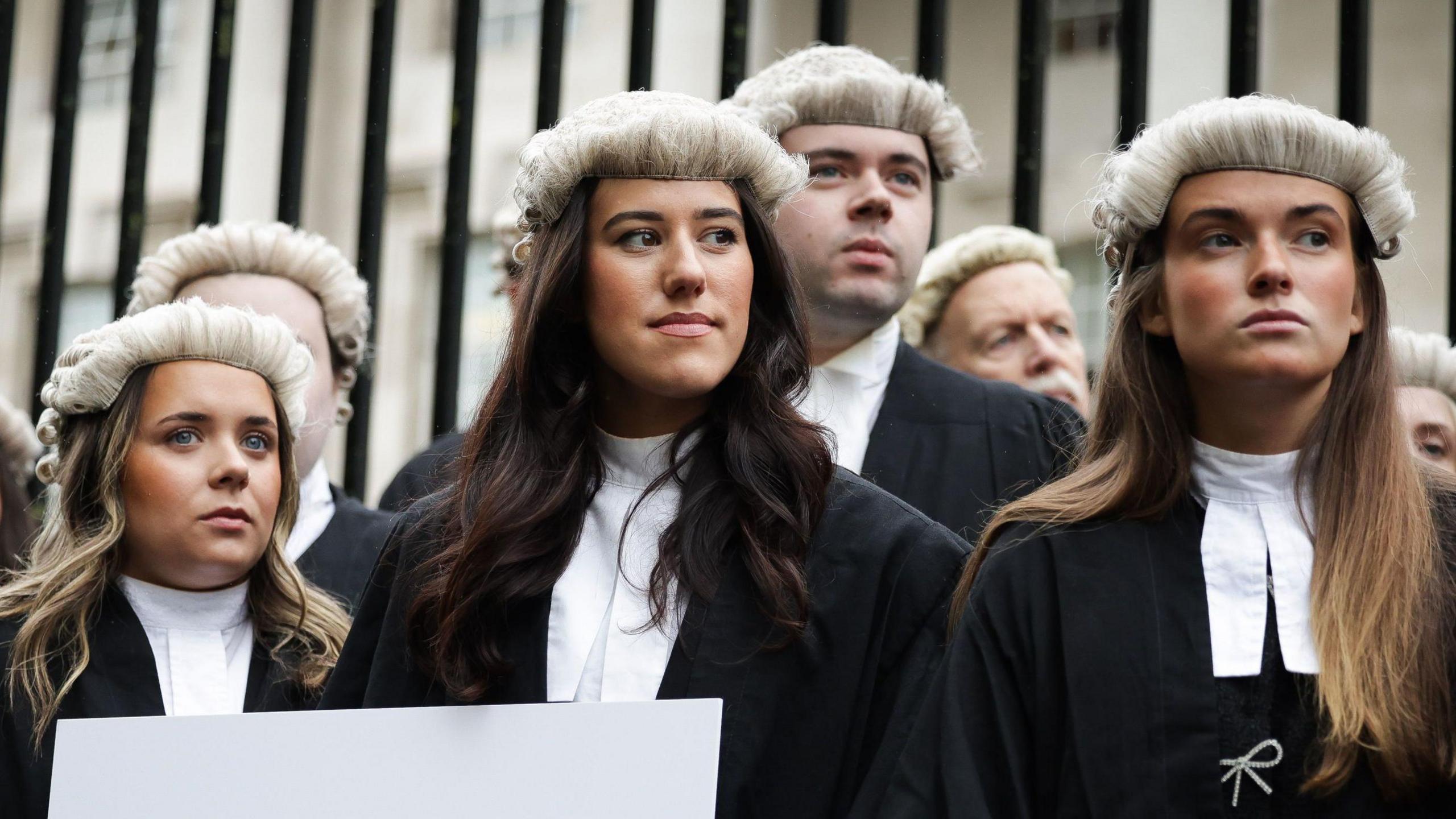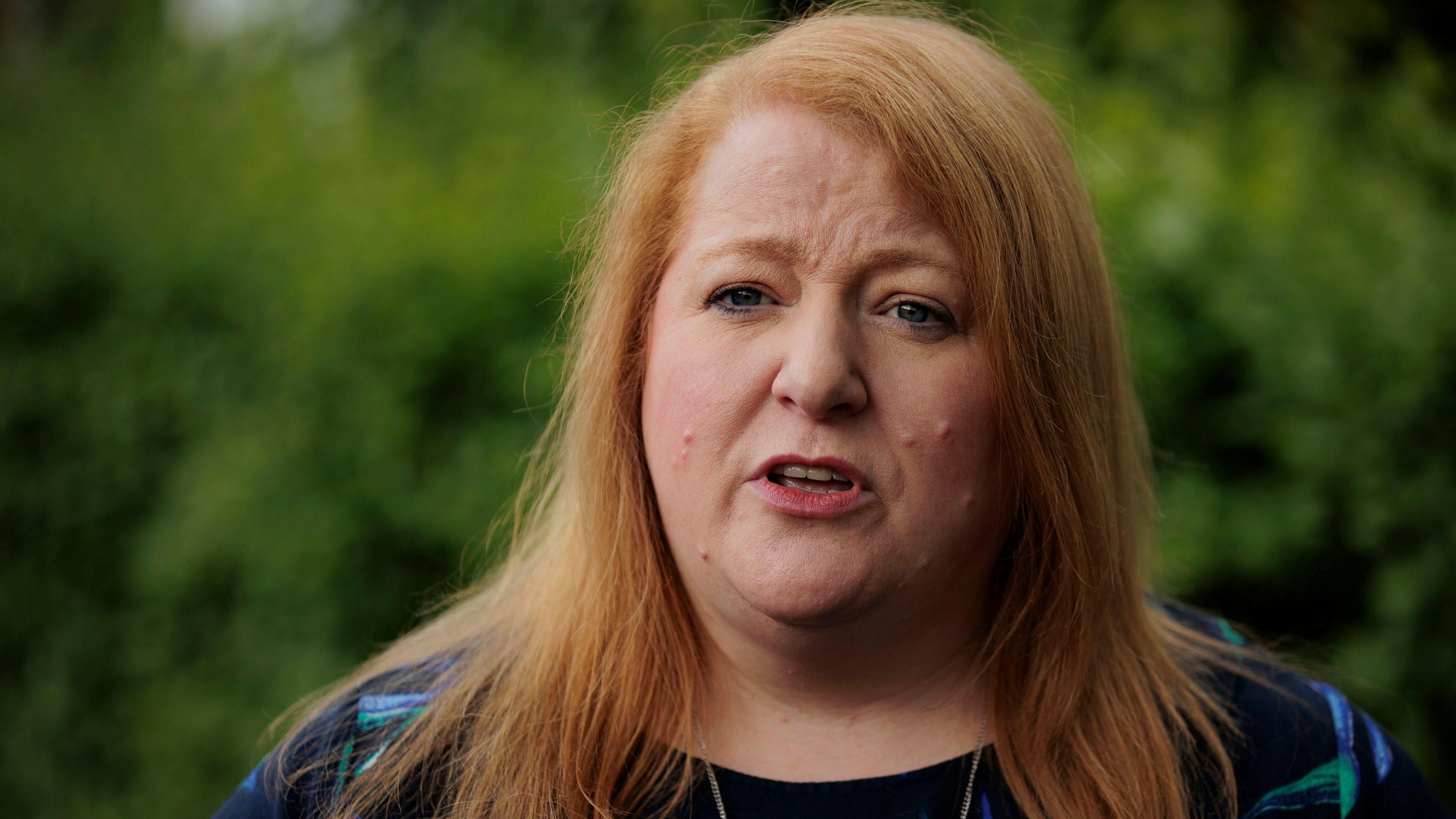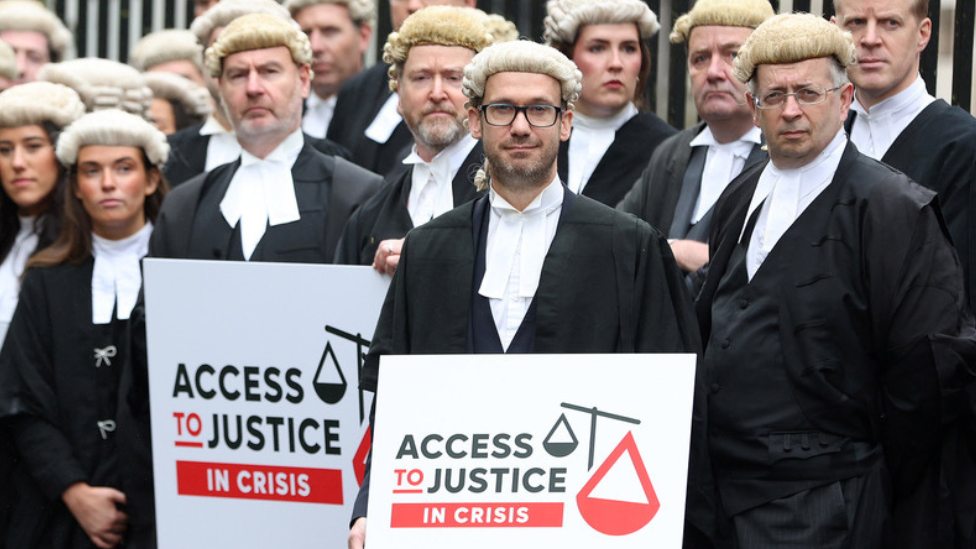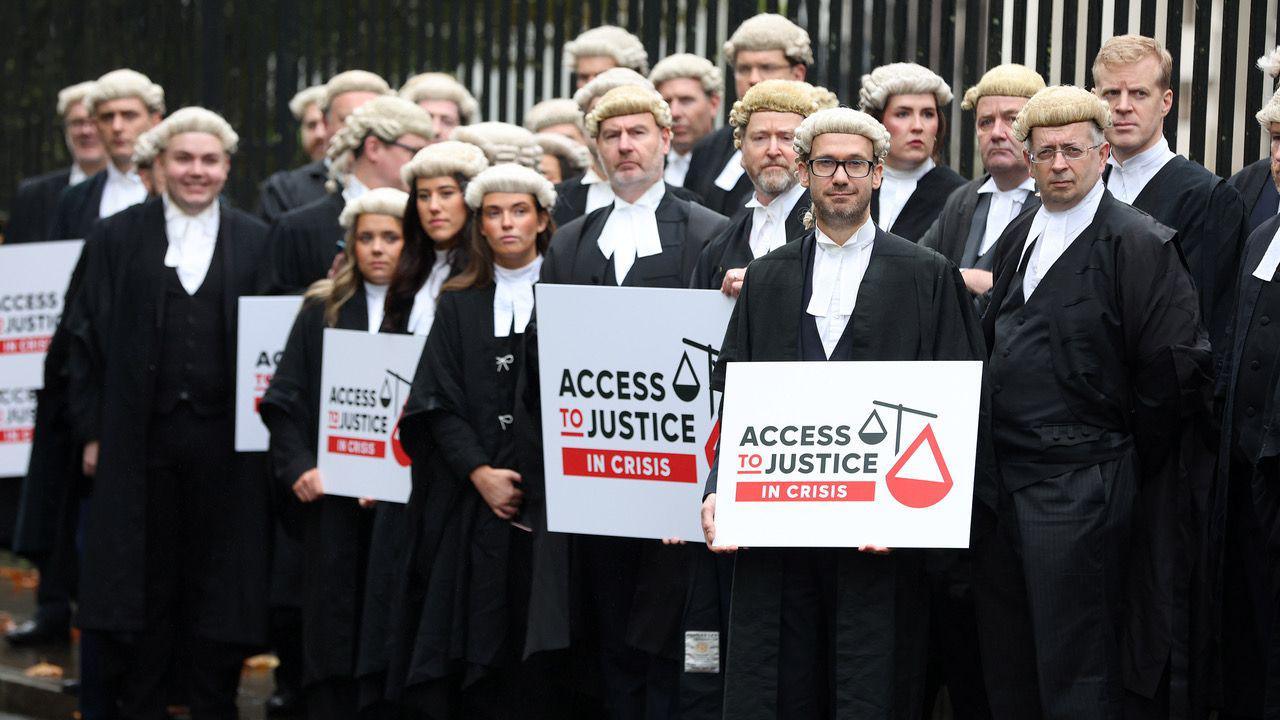Barristers begin four-week strike over legal aid

The action takes place from Monday 6 January until Friday 31 January
- Published
Criminal barristers in Northern Ireland have withdrawn from legally-aided Crown Court cases for a four-week period in a dispute over legal aid.
The action, announced by the Criminal Bar Association (CBA) last month, is taking place between 6 and 31 January.
It comes after criminal barristers and solicitors took part in a one-day strike in November, with the CBA calling the action a "necessary response" to barristers doing more for "significantly less".
The justice minister said she was disappointed by the industrial action which would "impact most acutely on the victims and witnesses who are waiting to give evidence and receive justice".
"The uncertainty caused by the withdrawal of services will only add further to the stress and anxiety they may already be experiencing," Naomi Long added.
She said the action would also add to existing pressures on the system and exacerbate the delays that her department and justice system partners had been striving to address.

Naomi Long said she needed more time to increase legal aid fees
What is legal aid?
Legal aid for criminal court cases allows representation in a criminal case.
These cases usually take place in the magistrates' courts or Crown Court.
The CBA previously stated that legal aid rates for lawyers, when adjusted for inflation, have plummeted between 47% and 58% since 2005.
In November, criminal barristers began withdrawing services in certain categories of criminal cases, such as refusing instructions in murder and manslaughter cases.

Former Justice Minister, Claire Sugden
Speaking on BBC Radio Ulster's Good Morning Ulster programme, former Justice Minister, Claire Sugden said that legal aid has always been an issue for the departments budget.
Sugden said she was told by the Bar Council and Law Society that the hours worked by barristers doesn't match the current rate of legal aid fees.
"They're a business like any other, and they will just decide to go with their feet and go with the business that will pay them," she said.
Donal Lunny KC, chair of the Bar Council, said while the withdrawal of services was regrettable, the department's review of the legal aid system had made it inevitable.
"Fees for legally-aided criminal work have not been increased since 2005 and are worth just 50% of their original value," he said.
"Additionally, barristers are subject to crippling payment delays, under a policy imposed by the DoJ on the basis of balancing its budget."
Mr Lunny said criminal barristers had indicated that remuneration levels in the most serious and complex cases "do not allow counsel to provide the expert advocacy that these cases demand and that the public deserves".
"These cases are not funded to a level which allows for proper representation at present," he added.
Long said she was "committed to continuing regular engagement" with the Bar Council and CBA "to progress reform and to resolve the withdrawal of services".
"This includes delivering a significant uplift in fees," she added.
"However, there is a process to go through, not least in terms of delivering legislation and we need time to do this."
- Published17 December 2024

- Published4 November 2024
